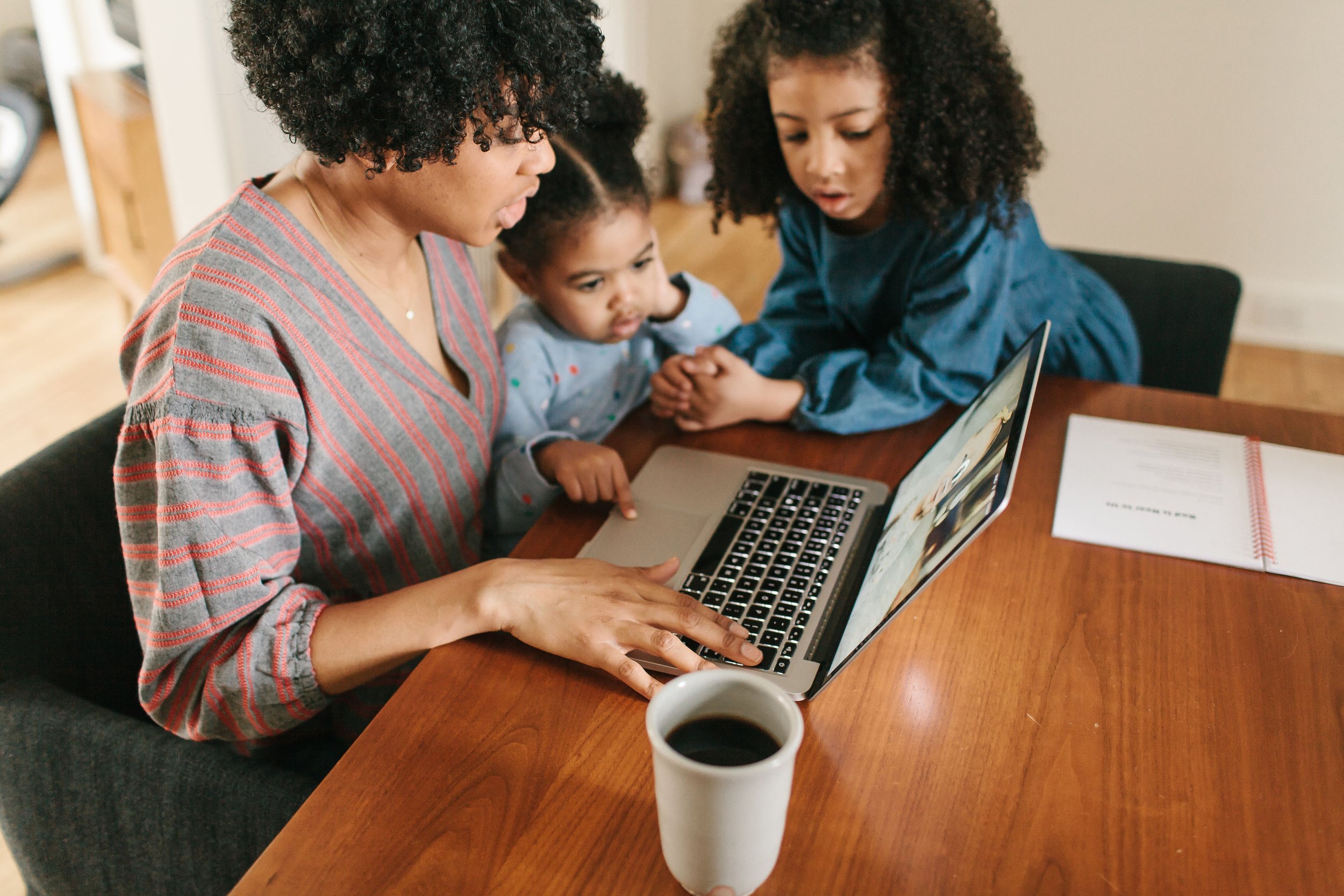
[[bpstrwcotob]]
Explore our content
Let Your Heart Take Courage: Waiting on the Lord in an Adoption Process
As we wait for a precious child to join our family, we can wait in hope and dependence on the God who draws near to us.
Facing the False Guilt of Infertility
Because Christ has taken our shame to the cross, we can live free from condemnation—even when childlessness seems to define or isolate us.
Secondary Infertility and the God of Abundance
We can be thankful for the children we have and grieve the ones we have lost—trusting that God works all things for our good.
Mamas, Welcome Your Sisters Battling Infertility
You need friends who are struggling with infertility and they need you too. In Christ, we can offer true fellowship to any sister-in-Christ, no matter their stage.
God Has Purpose In Our Pain
When it feels like you can’t hold it all together, remember it’s God who holds you with loving compassion and steadfast grace.
Loving Your Friend Through Infertility
Infertility is painful for countless reasons, but one reason is women can feel isolated from or misunderstood by their loved ones.
I know this struggle all too well.
Now that I’m in my early 30’s, I’m the only woman in my circle of friends who does not have children. I respect and admire their commitment to their families, for that is a good, godly calling! However, the natural result tends to leave me, a childless woman, feeling removed or not properly cared for.
How, then, should you love your friend suffering through infertility?
There isn’t one ideal approach, and every woman is different but here’s what I’ve learned. By leaning into Christ, you can love and serve her well through these three Gospel-centered ways:
(1) Mourn with her.
(2) Remind of her of her identity in Christ.
(3) Speak truth, not fluff.
There is unending grace for you and your friend as you navigate this trial together. Be committed, be bound, be unshakable.
Infertility and the Gospel
“‘Am I going to continue to trust God, even if he never fulfills the longings of my heart?’
That question filled my mind after the doctor informed me that I was born with a somewhat rare medical condition that prevented me from bearing my own babies. The news almost devastated me. For the first time in my life, I faced a situation I couldn’t quickly fix or work my way out of. It didn’t seem fair. With a tear-stained face, I entered into the greatest wrestling match of my life with the Lord.
‘Where was God in my childlessness?’
‘How does the Bible speak to my suffering?’
‘Why would God withhold apparent good from me?’
Maybe you’ve asked similar questions. Maybe you’ve struggled month after month to get pregnant, to no avail. Maybe you’ve lost a precious little one by miscarriage. Maybe you’ve had one child, but are experiencing second hand infertility and another baby won’t come.
God met me in the midst of my longing for motherhood.
As I searched scripture for hope in the midst of my suffering, I learned that the pages of the Bible weren’t silent on the topic of childlessness. Seven barren women are highlighted in the Bible.
I’m glad the Lord included the struggles of other women like myself—women longing to be mothers.
Because the good news the gospel offers in the midst of our pain is that our identity isn’t in our ability to bear babies. The greatest role of a woman is not to be a mother, but rather to glorify God with our whole lives in whatever circumstances we find ourselves.
Biblical womanhood is about boldness, tenacity, tender heartedness, and loving the Lord and his people.
Even if we never have that longed for baby; even if our family looks different than we’d imagine, we can rest in the fact that the Lord promises his presence. In him, we can find hope.
Press into him and allow him to speak life into your soul.”
Identity in Christ
Have you ever considered how your identity was shaped?
Our identities are who we are at our core. The things that often define us can be connected to our family’s achievements, or possibly our own abilities, the things we’ve accomplished or even failed at.
If you’re anything like me, you take pride in your roles.
I grew up in the church as a preacher’s kid, I was a cheerleader for most of my life, a sorority girl in college, & after graduation, I soon became a wife. After marriage, we unexpectedly struggled with infertility, experienced failed adoptions, then—by the grace of God—became pregnant with twins, & I finally became a mama. Oh, the pride!
Unfortunately, when my marriage shattered, so did my self-esteem.
I became a single mama in 2015 & I was lost, broken, hurting & fearful of how life was going to turn out. I desperately needed the Lord & needed him to redefine who I was, my life, & mend my heart.
Christ constantly challenged the root of people’s identities, but also graciously & freely gave newness to those who believed in him. These pictures of unconditional acceptance, grace, & love caused me to see myself the way he does; in spite of my circumstances or what other people may think of me.
2 Cor. 5:17 tells us, ‘If we are in Christ, we are new creatures and made new.’ Paul is talking about our identities—who we are. Those old labels & attachments rooted in anything besides the work of the Lord will pass away.
As single mamas, it is easy to wear that label & deal with the empowering or negative connotations of it. Although we are doing a two person job alone most days of the week, we have to remember where our true identity lies. Raising our babies alone is what we do, it is not who we are.
Christ was never concerned with job titles & status; he surrounded himself with tax collectors, the sick, prostitutes, & known sinners. He knew who they were & he used their lives for his glory. He came to have a life altering interaction with us that would change what & how we do all things forever.
Out of those truths of who we are, what we do is done differently.
Members, Not Measures: A Call to Own One Another’s Joys and Sorrows
My husband and I host a weekly small group comprised of eight married couples who are all under the age of 35. At the close of each of our meetings, the girls and guys divide to share more intimately and to pray for one another specifically. Our semester’s praises and prayer requests were all over the map, especially in the realm of fertility and childbearing, and we rarely left our time together without the shedding of tears.
At times I feared that our group would not survive because of the fact that we were walking triggers for one another. We fought feelings of guilt in weeping and feelings of contempt in our rejoicing.
But instead, God caused this community to abound in love for each other. I witnessed the beauty that emerges in the tension when weeping and rejoicing are happening all at once.
We know that just as Christ assigns our roles, he is sovereign over our experiences. We can trust that whether our families are growing or we are in seasons of waiting or mourning, there is nothing that happens outside of his sovereign will, and that he is working all things for our good.
When the tension of weeping and rejoicing is painful and awkward, we must resist the temptation to avoid each other. We must continue to meet together, reminding each other of God’s goodness, and praying for one another.
There’s a reason we are called a body. We need one another.
Because We Could Not Stop for Death: Miscarriage and the Believer
I left the meeting as early as I could excuse myself and came home, hobbling in our back door, running to the bathroom. I knew what to expect but nothing prepares you for the emotional and physical toll of blood loss, hormone loss, and the tiny baby loss in the moment.
Before I got married I thought, at times, women could be dramatic about their infertility or miscarriages. I thought: “Children are a blessing, but they’re not an idol. Why is your world falling apart because of this?” As I lay sobbing on our bed that day, I hiccupped through the words, “I just want it to stop.”
... The Psalmist David knew this slow drive too. He said the words, “How long, O Lord?” nine times in the book of Psalms. He was desperate for the Lord to relent, to show up, to release, and to end David’s suffering. We, like David, are not good in the middle of things. We don’t like it. We can anticipate the danger or suffering ahead, even know the right theology to regard it, but when the gushing pain begins, where is our hope then?
Our hope is in the permission to say, with David, “How long, O Lord?” And then to keep saying it, for as long as we are still waiting for it to relent.
... Our Father knows the searing loss of losing a child. Our Savior said these words on the cross, “My God. My God. Why have you forsaken me?” Our Spirit groans with us in our weakness with words too deep for us to even understand. Surely there is permission to sit, ache, mourn, and weep in this middle place?
Where to Next?
We podcast too
You don’t have to live with fear in motherhood.
Tune into our Fear mini-series, where we discuss the hope the gospel gives when motherhood feels scary.
All the freebies, just for you.
Ready to be intentional in your prayer life?
Get our free prayer resource with thirty days of prayer prompts for mom and fun activities to teach your children too.
We’re a nonprofit
All our content is free because of moms like you!
Want to help Risen Motherhood keep creating the content you know and love? Give now.















